According to Nu Skin, over 60 million Americans have active acne. Both teenagers and adults are suffering. Clearly, it affects a lot of people. Most importantly, most of us don’t exactly understand how acne is taking to form. Primarily, breakouts are outcomes of your skin over producing oil that can clog your pores. However, genetics also play a role in how your body reacts to the different hormones that can cause acne. Moreover, some external factors can also cause this type of skin problem. Here are 10 surprising triggers that should be wary of people prone to acne.
10. Your’s Boyfriend’s Beard

Your partner’s beard is unfortunately not helping your acne. Indeed, when your face rubs against it, it creates a friction that causes its prickly hair to stimulate the production of oil on your face, causing breakouts.
9. Spicy Foods

Spicy foods often have tomatoes and peppers, which contain lycopene acid that can irritate some people, reject the pH of their skin and trigger rashes. However, it’s not just spicy foods that can irritate your skin. Don’t stop eating spicy, simply be careful!
8. “Non-comedogenic” Products
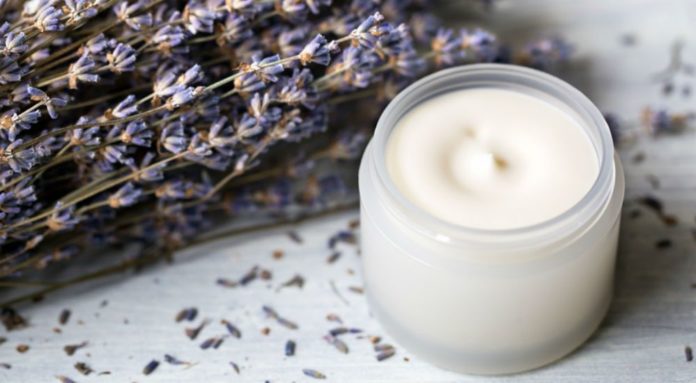
Mineral oil is a super heavy moisturizing agent found in some lotions, but it is also known to clog your pores. Silicone in skin care and cosmetics is also another ingredient that you should watch for because it can clog pores. Make sure all skin care products you are using are labeled as “non-comedogenic”, which means that they have been specifically formulated to not clog your pores. That said, even if one of your products is “non-comedogenic”, if you use it continuously and your acne breakouts continue to get worse, make an appointment with your dermatologist because you may be allergic to another ingredient of the product that causes your problems.
7. Les produits contre l’acné
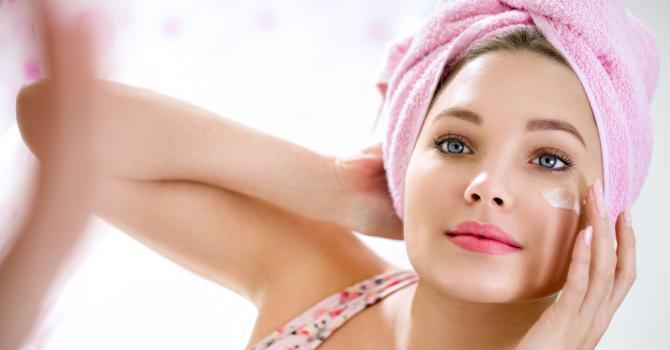
Excessive use of topical salicylic acid, benzoyl peroxide or over-the-counter sulfur can dry your skin, causing it to produce more oil and possibly skin blemishes. These ingredients can actually make your pimples get worse, since the active ingredients can lightly burn the top layer of your skin if you use it too often, making the pimple redder and harder to hide. You must give it some time to heal properly. Instead of coating your pimple with spot treatment, apply 1% OTC hydrocortisone cream, two to three times a day, to reduce inflammation and redness. Then simply cover it with a concealer that contains antibacterial ingredients.
6. Hair Products
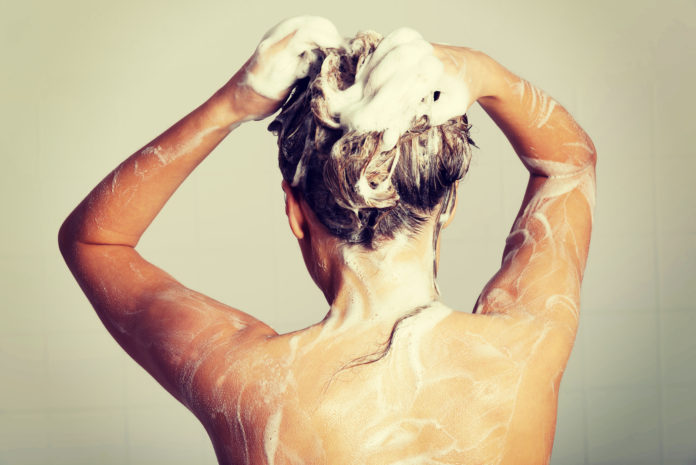
Sulphates (cleaning agents), heavy moisturizers and silicones that your shampoo, conditioner and styling product contain can seep into your pores, clog them and cause acne or pimples along your hair.
5. Smoking
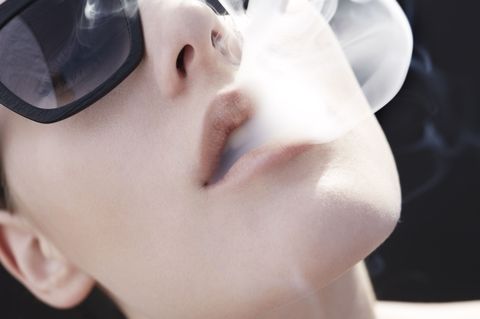
Every time you light a cigarette, you decrease the amount of oxygen that goes to your face. Not only does this predispose you to cancer and causes the breakdown of collagen and elastin that causes wrinkles and increased pore size, but carcinogens in the smoke irritate and dry your skin, triggering production. oil.
4. Truth About Exfoliation
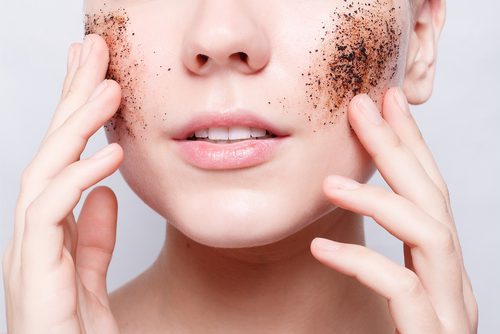
Many people with acne think that exfoliating their skin with smooth their skin, but in reality, it will inevitably worsen their skin problems. When you scrub it activate your acne and the bacteria get a chance to spread through the skin, which aggravates your skin condition. You should gently wash and moisturize your face with a gentle and effective product (cleanser, toner, moisturizer) that contains adequate ingredients, such as alpha-hydroxy acids and glycolic and lactic acids.
3. Don’t Touch Your Pimples
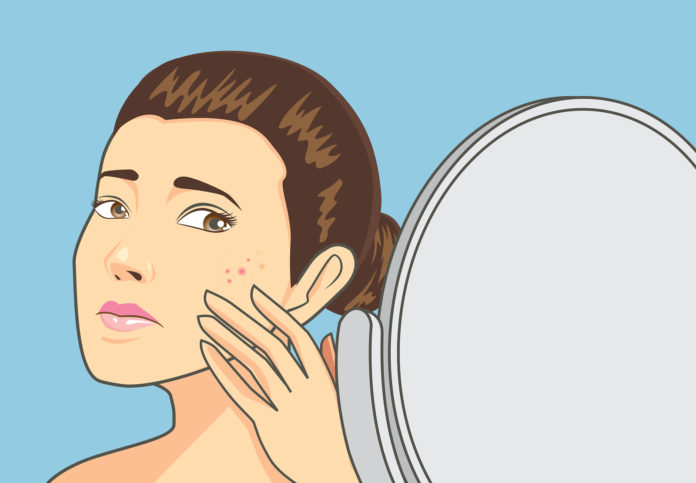
It’s tempting in the moment, but it’s never a good idea to play the dermatologist because it’s impossible not to make a red mark that could turn into a scar. Worse, when you try to push the pimple, oil, or pus of your pore, you might push the bacteria deeper or spreading it under your skin, that can multiply your pimples. Resit the temptation to touch your face for unnecessary reasons!
2. Stress

Stress triggers acne that leads to more stress, so it’s a vicious circle. Basically, when you’re under pressure, your skin produces stress hormones, including cortisol. They can stimulate your sebaceous glands to produce testosterone, which then increases oil production and clogs pores. Workout regularly, meditate, take the time to focus on yourself – all of these things will help you release stress so that your body does not continue to release hormones that will only harm your skin.
1. Using the Wrong Detergent
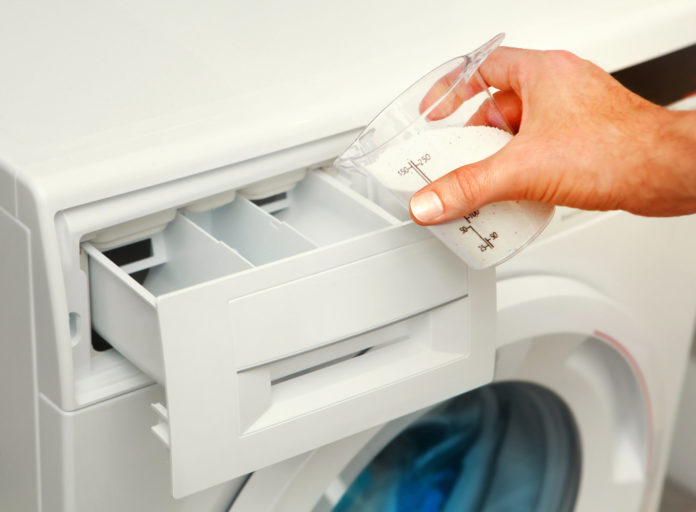
Some chemicals in laundry detergent can be harmful to your skin. Once you put on your clothes or rest your head on your pillow, your skin may react to residues left on the fabric, causing rashes on your face, back, buttocks, chest, etc. Choose a free perfume detergent or dye and tested by a dermatologist for sensitive skin.
Source:
Cosmopolitan


![[Photos] Why WD-40 Is Magic In Your Garden?](https://lifetonik.com/wp-content/uploads/sites/7/2019/08/WD40-Prices-Highres_Page_8_Image_0008-218x150.jpg)
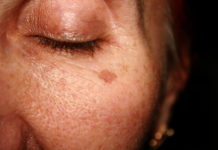




![[Photos] Take A Look Of The Obama’s New Home Before It’s Banned](https://lifetonik.com/wp-content/uploads/sites/7/2019/07/Obama1-218x150.jpg)

![[Slideshow] Celebrity Homes: 21 Of The Most Luxurious](https://lifetonik.com/wp-content/uploads/sites/7/2019/07/Taylor-Swift-218x150.jpg)
![[Slideshow] More Parents Are Now Gluing Pennies to the Bottom of their Kid’s Shoes](https://lifetonik.com/wp-content/uploads/sites/7/2019/07/Keep-Them-Entertained-218x150.jpeg)
![[Photos] 20 Fashion Mistakes That Too Many Women Make!](https://lifetonik.com/wp-content/uploads/sites/7/2019/07/5-style-mistakes-that-make-you-look-frumpy-featured-218x150.jpg)

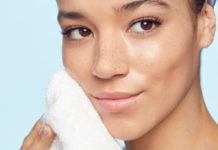








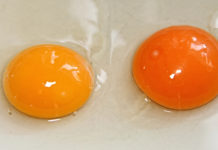
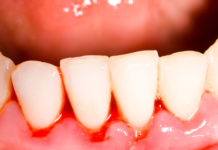







![[Gallery] 25 Discounts For Seniors To Which You Are Entitled Without Knowing It](https://lifetonik.com/wp-content/uploads/sites/7/2019/08/EAZxECUXUAAvNZR-218x150.jpg)
![[Slideshow] Here’s the salary of every governor in the United States](https://lifetonik.com/wp-content/uploads/sites/7/2019/08/Charlie-Baker-218x150.jpg)
![[Photos] No One Will Want To Buy This House After Seeing These Pictures](https://lifetonik.com/wp-content/uploads/sites/7/2019/08/terrible-real-estate-photos-2-5c35e727c9f95__700-218x150.jpg)



